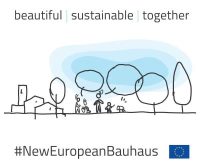Inclusive growth is the highest priority for cities when planning ‘smart city’ projects, while cost reduction is the least important according to a study presented at the EIB by Sciences Po Masters’ students under the framework of a capstone project organised by the EIB Institute’s Knowledge Programme.
This may be because inclusive growth is a more “marketable objective” for supranational financiers, or simply the result of a trade-off between multiple competing priorities, says the study, carried out over six months by a team of five students from five different countries under the guidance of EIB mentors.
The other main findings of the study on “What business model for smart cities assets?” were:
- All cities had well-defined ‘smart city’ strategies in place, or were in the process of putting one together.
- Smart assets were most commonly used to optimize the provision of services such as waste management, energy and water.
- International cooperation for smart city projects is much more prevalent than regional cooperation among clusters of neighbouring cities.
- Government budget represents an important source of funding and none of the assets surveyed were fully funded by the private sector.
A majority of respondents were European cities with an average population of one million inhabitants.
This was the first of two capstone projects undertaken in 2017-2018 under the agreement signed between the EIB Group and Sciences Po, France’s leading university for social sciences.
Click here for the presentation.




